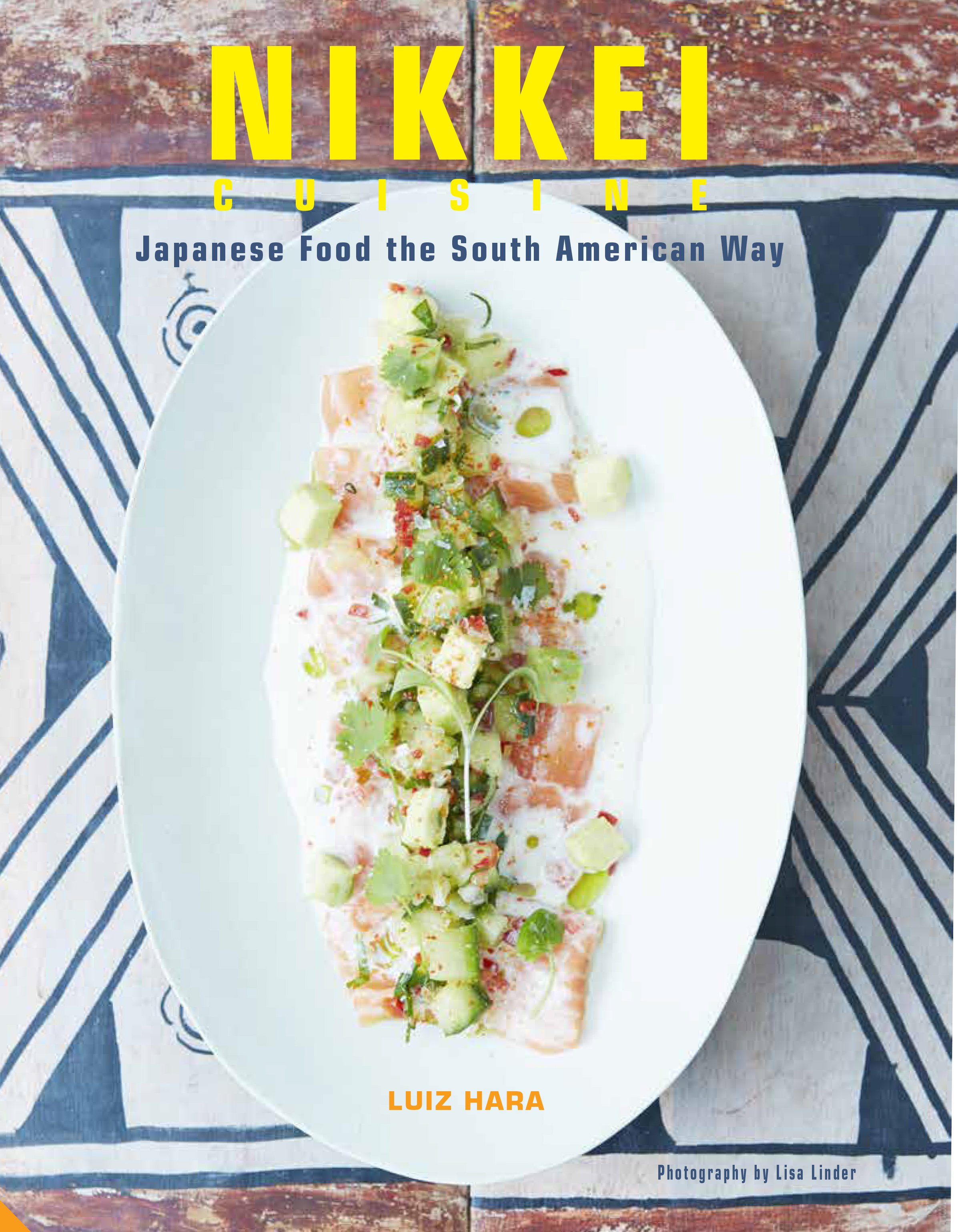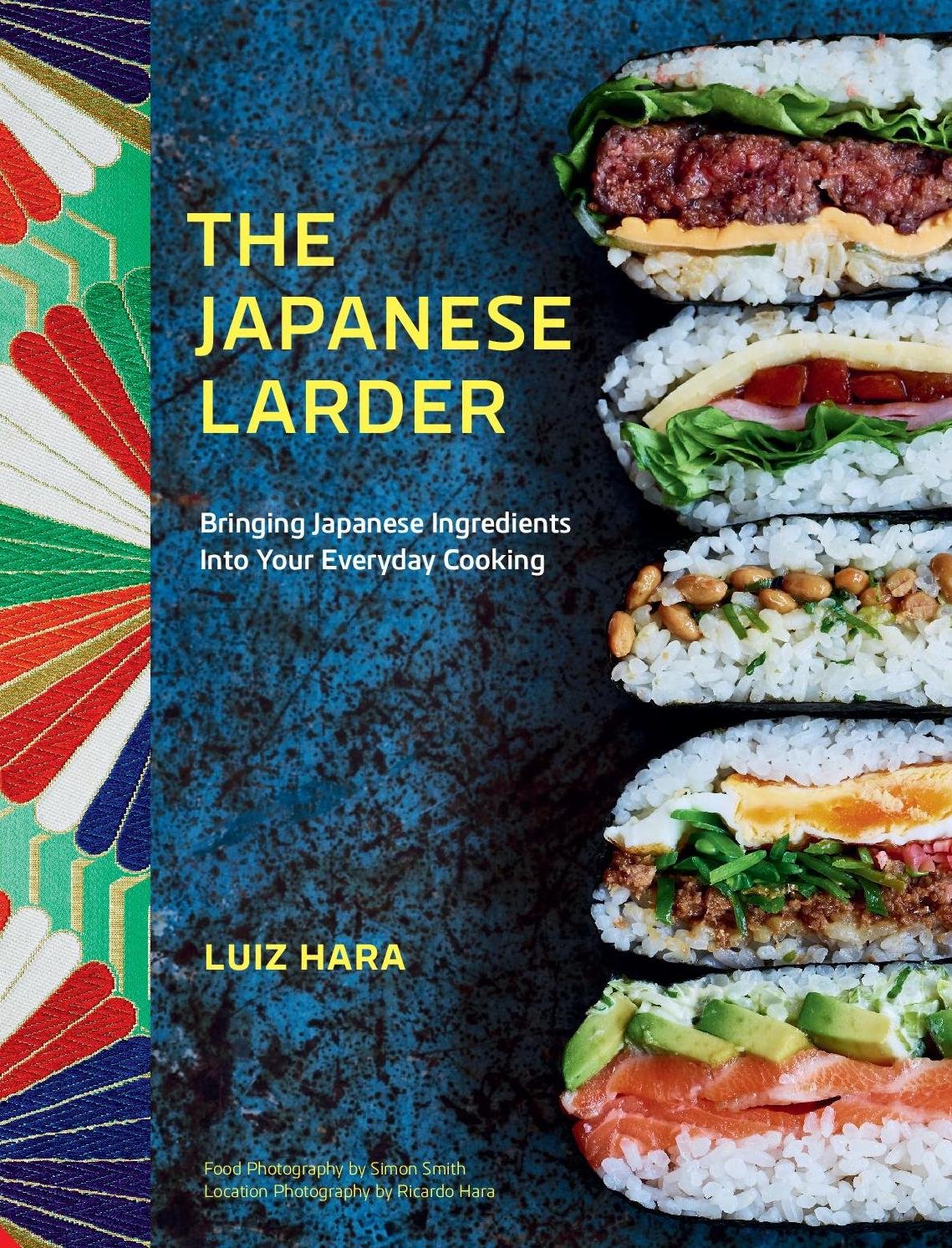The Quest for happiness - Luiz Hara, host of Japanese and Nikkei supper club
Do you love your work or do you look forward to Friday? Finally, aged 39, Luiz Hara, discovered his passion. He took the plunge and ditched banking. He started his cooking journey by going back to his roots in Japanese food, lovingly cooked by his paternal Japanese grandmother. He was one of the first to enter the realm of supper clubs and has been hosting dinners at his house since 2012. His supper club has become a much sought-after event.
Luiz Hara of The Japanese and Nikkei Supper Club
Born in Brazil to a Japanese father and an Italian mother, his supper club events celebrate Nikkei cuisine, which originates from Japanese immigrants in South America. The Japanese newcomers had to adapt their cooking according to the ingredients then available with few Japanese ones to hand. They immersed themselves in creating dishes using fish, a key part of a conventional Japanese diet. For instance, Tiradito, a Nikkei classic, uses raw fish with citrus juices drizzled over it. It is similar to the Peruvian national dish, ceviche (raw fish cured in citrus juices). Nikkei cuisine has also incorporated the use of meat that was (and is) consumed in huge quantities in South America.
Luiz’s devotion to Japanese and Nikkei food sparkles at his supper club. His extensive menu often features his famous Mentaiko Spaghetti, beautifully swirled on the plate, bejewelled by marinated fish roe, mixed in Japanese mayonnaise and Shichimi pepper sauce. The fish roe added a distinct savouriness and minerality to the creamy mayonnaise, leaving an indelible memory on my palate on my visit to his supper club.
Mentaiko Spaghetti
Signature dish at Luiz Hara’s Japanese and Nikkei Supper Club
Photo credit: Simon Smith
Luiz is a generous host and judging by the copious amounts of food presented, he loves feeding people to bursting point. In return, he expects you, quite rightly, to respect his home and his house rules, which he asks you to read before attending. He emphasises that you are being welcomed into his house, which does not operate like a restaurant. So, don’t expect professional waiters and he gently warns that supper clubs may not suit fussy eaters.
After 7 years in banking, Luiz decided that he couldn’t face it anymore. He had to work “incredibly long hours”. He emphasises that “I’m a people’s person. I like talking to people … I love cooking for people, socialising and hosting”. Aged 39, he had to do something that would connect him with people through a shared love of food. He enrolled on the Grand Diplôme course at the highly respected culinary school, Le Cordon Bleu in London, the “holy grail” of cookery training, as he put it.
While waiting for the course to start, he spent 6 months in Japan, working at an Izakaya (a Japanese bar that serves food) and attending cookery courses. Japanese food was what he grew up with and adored. He worked for free “like a little slave” for the lady owner who was in her 70’s. He helped with the food preparation and cleaned the whole place “from top to bottom”. She worked so hard and “taught me so much about Japanese food”. He described the psyche of Japanese people: “It’s that strife for excellence that really struck me, striving to give the best service you can, the best food you possibly can. We would bow to [our customers] and we would stay bowing until they turned the corner. We had to keep looking, to see where they were going, to see if they had gone”, he chuckled.
As he was studying at Le Cordon Bleu, the idea of hosting supper clubs sprang to mind. Many students there would typically go on to do stagiaire (working for free in a restaurant). Michelin-starred restaurants were “dying to get volunteers to come and work for them for free, like cleaning the floor, cleaning stuff”, he lamented. That was not for Luiz. Instead, he aimed to hone his skills in practising cooking as much as possible at his supper clubs and more importantly, to scale up and learn how to deal with suppliers and staff. “This you only learn by doing it, not peeling potatoes at Fat Duck.” Of course, he was making some money too. It was a double whammy for Luiz.
He described life as a chef in a professional kitchen as like joining an army. He had no desire to spend the next 10 years of his life in climbing the hierarchy by being a commis chef, a chef de partie, a sous chef, a senior sous chef and hope, one day, to become the head chef. By then, he would be approaching 50. He wished to be free from all these constraints and be in control of his destiny.
“I really love being in contact with people. I love cooking. I love having the freedom to choose what I wanted to cook without having to worry about the cost. I had much more freedom to choose what I wanted to do and spend more money on the food and giving a better experience” rather than worrying about the expenses of running a restaurant. After more than 20 years in London, he was realising his dream of cooking and connecting with people at the same time instead of slaving behind a desk or a stove without seeing any guests.
Ever an entrepreneur, he also started hosting supper club events with chefs cooking other cuisines. They included Alessandro Grano, head chef at La Fromagerie and Danilo Cortellini (former Masterchef Professionals finalist and head chef at the Italian Embassy in London). His events also served as a test bed for chefs to try out their food and concepts before opening their own restaurants. Asma Khan (of Darjeeling Express, an Indian restaurant) and Andy Oliver (of Somsaa, a Thai restaurant) went on to launch their restaurants after cooking at Luiz’s supper club. This way, he has been able to connect with and promote chefs and expand his repertoire while offering a variety of cuisines to his guests.
As a supper club host, he met many people. The commissioning editor of the publishers, Jackie Small, came to his supper club. Intrigued by Nikkei cuisine that Luiz championed, the publishers commissioned him to write his first cookbook, “Nikkei Cuisine”, which was followed by “The Japanese Larder”.
Luiz’s parents divorced when he was seven. He and his three siblings were brought up by his Japanese father with help from his paternal grandmother. Though his mother ran her Italian restaurant in Brazil, he counted his Japanese grandmother as having the biggest influence on him. “We grew up as granny’s boys. She raised us. We were very lucky to eat Japanese food everyday cooked by her and learn how to cook.” All the children had to “chip in and help her with the cleaning and the cooking.” He accompanied her to the food market and translated for her, as she could speak very little Portuguese.
As a treat, his father used to take the children to fancy restaurants, opening their eyes to all kinds of cuisines. He was a very reserved man and was “not very good at communicating affection”, he recalled. No such thing as saying “Well done” to any of them. “I couldn’t verbalise what it was, but when I was much older, I realised that it was part of my growing up in an Asian household where communications were quite difficult. We expressed our affection and our appreciation to each other through acts of food.” His father used food to express his love for his children. His grandmother was the same, taking care in cooking the best Japanese food she could for them.
Love was what he found soon after he arrived in London in 1992, aged 18. He came to do a year out as part of his hotel management degree in Brazil and worked as a hotel receptionist. He met his now husband, Gerald and decided to stay in the UK. He later enrolled for a degree in international business and Italian after abandoning his degree in Brazil.
One of his lecturers on his degree course encouraged him to study accountancy. He was attracted by how much money he could earn as an accountant. He had to finance the degree himself by working weekends. He was loath to ask for money from his parents who were desperate for him to return home.
Despite having undertaken the gruelling chartered accountancy exams, he realised, “My God, how can people be so excited about this?” He knew, even then, that what he “really cared about was food and talking to people and I am much more a people’s person”. He endured chartered accountancy for 5 years. He explained that he was “brought up as a child of immigrants in Brazil. Education was very important. My parents worked very hard, so that I could go to school and get an education. I didn’t want to disappoint”. However, not feeling fulfilled, Luiz conjured up a plan.
He decided to “really milk the system. I’m going to get as much money as possible and save every penny and see where I can go from here.” He went into investment banking. By the end of 7 years, he was “pulling his hair out”. But he had saved enough money to enrol on the course at Le Cordon Bleu and have a new beginning. He was finally doing what he meant most to him – cooking food from his roots and enjoying the company of people who come to pay homage to his food. His ocean-deep passion for Japanese and Nikkei food and his warmth was evident at his supper club.
Luiz, being a dutiful child of immigrants, initially followed the expected route of being a professional. After 12 years, he plucked up courage to break out of the mould in pursuit of happiness. He again departed from the well-trodden path of working in a professional kitchen after Le Cordon Bleu. He chose to run supper clubs, all on his own terms. In my humble opinion, his is one of the best supper clubs around in London.
Do you just dream of what you would love to do? Or, do you take action to fulfil your dream?
December 2021
© 2021 Yippie Limited. All rights reserved




